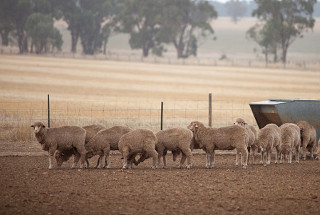Preparing your farm for drought

There are information tools to assist farmers in business management and farm planning.
Drought inflicts major financial, social and environmental costs on farm businesses and communities. The often slow onset of drought can add further complexity to the decisions required to successfully run a farm business.
It is important to take the time now to ensure good strategies are in place for your farm and business before the impacts of drought hit.
Agriculture Victoria has developed a number of information tools to assist in business management and farm planning. The increased likelihood of drought is also calling for improved skills and capabilities in how farmers manage business risk and plan for the longer term.
Courses in farm business risk management skills are available. They have been designed by industry experts to ensure relevance and demonstrate value to the sector.
Drought and dry seasonal conditions case studies
Case studies looking at farmers use of stock containment areas during times of drought and dry seasonal conditions:
- Case study: Simon Brady – Rhymney
- Case study: Charlie and Marie Crocker – Violet Town
- Case study: Ian Brown – Cowangie
Dry weather farming videos
Drought feeding and management of livestock
The managing resources in drought guides help producers break down the daunting planning phase into manageable steps that can be used to plan a successful way forward.
Stock containment areas
Stock containment areas (SCAs) enable farmers to fence off part of the farm to hold, feed and water livestock in tough conditions such as drought and after a bushfire.
SCAs deliver a range of benefits during droughts including minimising soil erosion, enabling faster pasture recovery, limiting the spread of weeds and allowing for good stock management.
